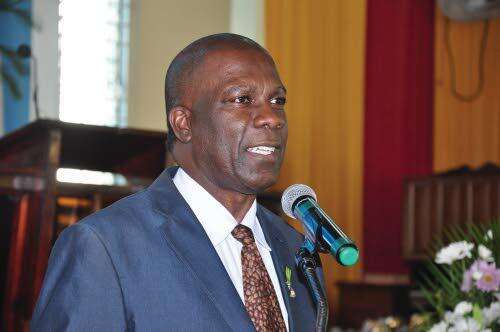JCEA Chairman Urges Withdrawal of Controversial Coffee Export Blockchain

Concerns Rise Over Jamaica’s blockchain Coffee Export Initiative
Dr. Norman Grant Calls for Withdrawal of blockchain Mandate
In Kingston, Jamaica, Dr. Norman Grant, the chairman of the Jamaica Coffee Exporters Association (JCEA), has officially urged the Jamaica Agricultural Commodities Regulatory Authority (JACRA) to reconsider its recent mandate requiring the use of a blockchain platform aimed at modernizing Jamaica’s coffee export process and ensuring access to vital international markets.
- Dr. Norman Grant Calls for Withdrawal of blockchain Mandate
- Farmers Voice Concerns Over blockchain Implementation
- Lack of Transparency and Necessity Highlighted
- Financial Impact on Coffee Farmers
- Market Readiness and Risks of Non-Compliance
- Urgent Need to Address Production Decline
- Recommendations for Industry Support
Farmers Voice Concerns Over blockchain Implementation
While the blockchain initiative is designed to enhance efficiency, it has sparked apprehension among various stakeholders, including farmers and processors. Key issues raised include potential risks related to the safeguarding of proprietary information, questions surrounding data ownership, and the financial burden associated with the gradual implementation of the system.
Lack of Transparency and Necessity Highlighted
In a letter directed to JACRA’s Acting Director General Wayne Hunter and shared with Minister of Agriculture, Fisheries and Mining, Floyd Green, Dr. Grant emphasized that JCEA’s stance stems from concerns about transparency, the actual need for the system, the financial implications for stakeholders, and the readiness of the market. He pointed out that despite multiple discussions with JACRA, the contract with the exclusive blockchain service provider has not been disclosed, limiting JCEA members’ ability to evaluate its terms and conditions.
Dr. Grant further argued that the blockchain system is unnecessary for compliance with the European Deforestation Regulation (EUDR). He noted that the European Union accounts for a mere two percent of Jamaica’s coffee exports, and current buyers already employ established systems like Hazard Analysis and Critical Control Points (HACCP) and International Organization for Standardisation (ISO) certifications to ensure traceability.
Financial Impact on Coffee Farmers
Addressing the financial implications, Dr. Grant indicated that the fees associated with the blockchain platform could lead to an increase in costs exceeding J$100 million, or J$1,000 per box. This rise in expenses would ultimately diminish the income received by coffee farmers. He stressed that the promised traceability would not translate into immediate financial benefits, representing an unsustainable cost for the coffee sector, especially in light of rising operational costs and declining productivity.
Market Readiness and Risks of Non-Compliance
Dr. Grant also raised concerns about the readiness of the market, noting that numerous international stakeholders, including traders and roasters from countries like Japan, China, and the United States, are involved in the trade of Jamaica Blue Mountain (JBM) coffee. He warned that if buyers opt not to comply with the new regulations, they may turn to alternative specialty coffees, potentially jeopardizing the future of Jamaica’s coffee industry.
Urgent Need to Address Production Decline
Dr. Grant underscored that the most pressing challenges facing the coffee sector are the ongoing decline in production and productivity. He pointed out that Jamaican producers currently lack sufficient coffee to meet global demand.
Recommendations for Industry Support
He proposed that JACRA should prioritize initiatives aimed at boosting productivity and production within the coffee sector. Dr. Grant suggested focusing on the full implementation of the Crop Restoration and Establishment Programme (CREP), which includes a J$350 million annual input support program over five years. This initiative would provide one million coffee seedlings, fertilizers, training for farmers, research and development, and improvements to rural infrastructure in Jamaica’s coffee-growing regions.
Dr. Grant concluded that such measures could potentially double annual coffee production from 225,000 boxes to 450,000 boxes over five years, increasing industry earnings from US$25 million to US$100 million annually over the next decade. Additionally, the completion of the coffee registration program could incorporate 5,000 more farmers, significantly benefiting approximately 200,000 families in Jamaica’s coffee-producing areas.







